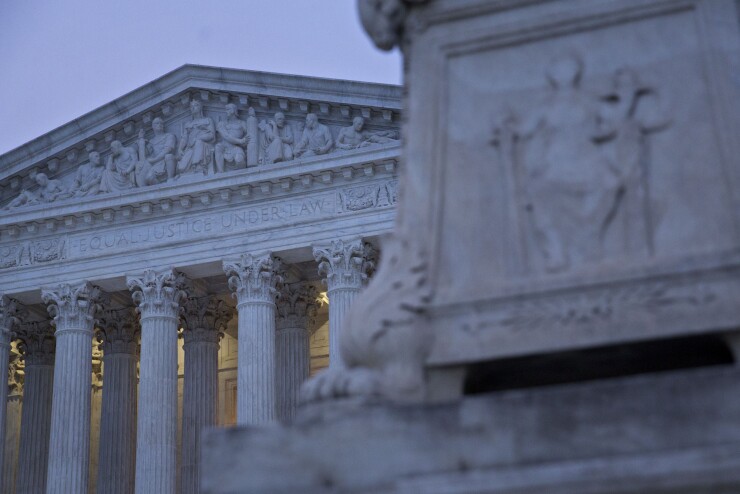The U.S. Supreme Court tossed out President Joe Biden's plan to slash the student debt of more than 40 million people, rejecting one of his signature initiatives as exceeding his power.
The justices, voting 6-3 along ideological lines,
Writing for the court, Chief Justice John Roberts said the administration was "seizing the power of the legislature" by trying to cancel so much student debt.

Biden is likely to face renewed
Student loan payments are set to resume in late August after a three-year pause. Millions of people could fall behind on their debt.
"This fight is not over," said Senator Elizabeth Warren, a Massachusetts Democrat and proponent of the relief plan. "The president has more tools to cancel student debt — and he must use them."
The three liberals in dissent said that the states lacked the legal right to challenge the loan relief and that Congress authorized the forgiveness plan. "In every respect, the court today exceeds its proper, limited role in our nation's governance," Justice Elena Kagan wrote for the dissenters.
The conservative-dominated Supreme Court has thwarted Biden's agenda on multiple occasions. The court stopped Biden from blocking evictions during the pandemic and requiring workers to get COVID vaccines or regular tests. The justices have also slashed the Environmental Protection Agency's power to address climate change and protect wetlands.
Biden's plan would have forgiven as much as $20,000 in federal loans for certain borrowers making less than $125,000 per year, $250,000 for households.
"Biden's student loan bailout unfairly punished Americans who already paid off their loans, saved for college, or made a different career choice," Republican National Committee Chairwoman Ronna McDaniel said in a statement. "Americans saw right through this desperate vote grab, and we are thankful that the Supreme Court did as well."
The administration contended the student-loan program was authorized by a 2003 law that gives the education secretary special powers when responding to national emergencies. The law, known as the Heroes Act, says the secretary can "waive or modify" provisions to ensure that debtors "are not placed in a worse position financially" because of a national emergency.
Roberts said that law doesn't give the education secretary power to "rewrite that statute from the ground up."
Roberts invoked the "major questions doctrine," a legal concept that has become a potent tool under the current court for limiting the power of federal agencies and departments. The high court has said the executive branch needs clear congressional authorization before taking actions that have sweeping political and economic significance.
The states — Nebraska, Missouri, Arkansas, Iowa, Kansas and South Carolina — and two borrowers challenged the program in separate cases. The court said separately the borrowers lacked standing. The Biden administration argued that all the challengers lack standing to sue because they aren't being directly harmed by the policy.
State standing
Roberts said the states had standing because of the impact on the Missouri Higher Education Loan Authority, a nonprofit, state-created entity that by law must contribute to a fund Missouri uses to pay for projects at public colleges. MOHELA itself wasn't involved in the suit.
"The secretary's plan will cut MOHELA's revenues, impairing its efforts to aid Missouri college students," he wrote. "This acknowledged harm to MOHELA in the performance of its public function is necessarily a direct injury to Missouri itself."
Kagan blasted that reasoning, saying the states "have no personal stake" in the loan-forgiveness program.
"They are classic ideological plaintiffs: They think the plan a very bad idea, but they are no worse off because the secretary differs," Kagan wrote.
The state case is Biden v. Nebraska,
— With assistance from Janet Lorin and Emily Birnbaum





